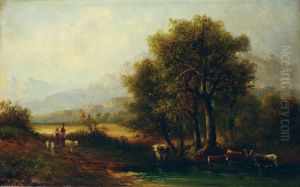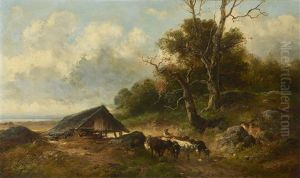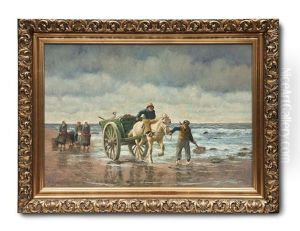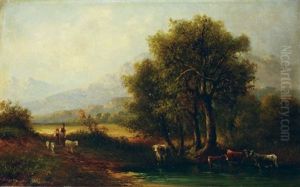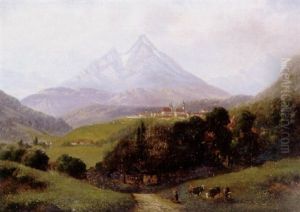Ernst Julius Engelmann Paintings
Ernst Julius Engelmann was a German painter and printmaker, known for his contributions to landscape and maritime painting. Born on February 26, 1862, in Leipzig, Germany, Engelmann pursued his passion for art from a young age, eventually studying at the prestigious Academy of Fine Arts in Munich. During his time at the Academy, he was influenced by the works of the Barbizon school and the Impressionists, which is reflected in his approach to capturing light and atmosphere in his landscapes.
Engelmann's work often depicted the serene and bucolic landscapes of Germany, focusing on the interplay of light, shadow, and color. He was adept at both oil painting and watercolor, using these mediums to explore the nuances of natural scenery. In addition to landscapes, Engelmann also had a keen interest in maritime subjects, producing numerous paintings of ships and the sea that highlight his fascination with water and its movements.
Throughout his career, Engelmann exhibited his work in various art shows and galleries across Germany and Europe. His paintings were well-received, earning him a reputation as a skilled landscape and maritime painter. Despite the changing art trends over the years, Engelmann remained true to his stylistic roots, which were deeply embedded in the realism and naturalism of the 19th century.
Ernst Julius Engelmann's contribution to German art is significant, as he helped to preserve the traditional landscape and maritime painting genres through a period of rapid modernization and change. He passed away on October 16, 1944, in Munich, leaving behind a legacy of work that continues to be appreciated for its beauty and historical value. His paintings are a testament to his love for the natural world and his mastery of capturing its ever-changing moods and colors.
